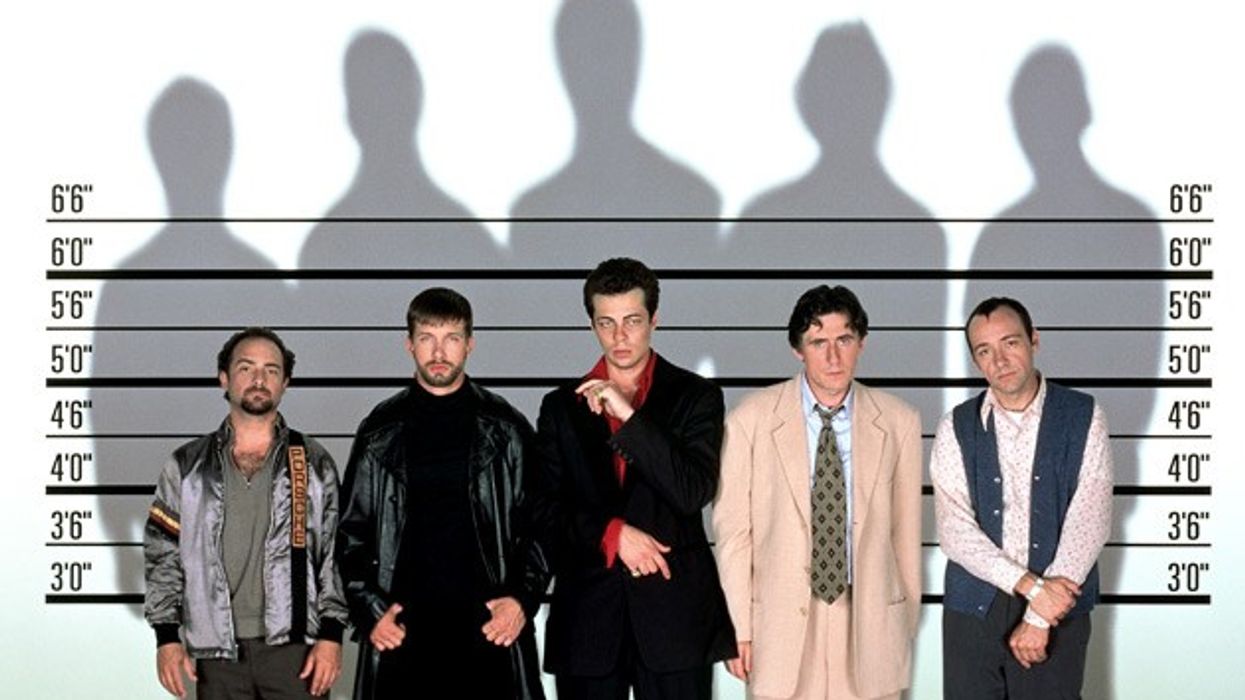This Making-Of Doc on 'The Usual Suspects' Breaks the Keyser Söze Case Wide Open

Ah, the 90s. Rollerblades. Bill Clinton. A time when moguls like Harvey Weinstein jetted out to Sundance and handed out fat distribution/production deals to filmmakers who were barely able to legally buy beer. One of these lucky young tyros was Bryan Singer, whose 1988 short, Lion's Den, led to a feature that went to Sundance, and that led to The Usual Suspects, which led to everyone losing their mind in 1995. Check out this behind the scenes documentary on that classic crime film, and see how story and filmmaking can trump budget.
This documentary on the film's production is a great look into how this classic modern Noir came about. Enjoy!
The digital revolution has completely changed and democratized the filmmaking landscape (though I'm sure you know this). For just a fraction of what it would have cost as recently as ten years ago, it's now possible to produce content that not only looks professional, but is professional, and this has led to a revolution in filmmaking. This wasn't the case in the mid-1990s, the era of the screenwriter/filmmaker as rockstar (case in point, Quentin Tarantino hosted Saturday Night Live, becoming the second director, after Francis Ford Coppola 'directed' an episode in the mid-80s) to have that honor. Back then, if you wanted your indie to get into Sundance or any other prestigious festival, that meant it had to be shot on film, with film cameras, and most probably edited on a flatbed or with an NLE like Avid (both of which were not available for chump change in those days; there was no editing on your MacBook, because there were no MacBooks).
But filmmakers are a hearty lot (and it didn't hurt to come from some money, or have access to money and/or connections) and in 1988, when he was 23, Bryan Singer made his first short, Lion's Den, co-directed with frequent Singer collaborator John Ottman; Singer managed to get childhood friend Ethan Hawke to appear in that film (the next year, Hawke had his breakthrough role in Dead Poet's Society). The short helped Singer make his first feature, Public Access, in 1993, which he co-wrote with Suspects writer Christopher McQuarrie and Michael Feit-Dougan.
Produced for $250,000, Public Access screened at Sundance, was the joint-winner of the Grand Jury Prize, and led to Singer meeting Kevin Spacey, who expressed interest in working with him. Christopher McQuarrie wrote the classic script, and the film was shot over 35 days in 1994, with a shooting budget of $5.5 million.
That might seem like an astronomical amount of money for today's indie filmmaker, but by way of comparison, Reservoir Dogs cost $1.2 million and Wes Anderson's first film, Bottle Rocket, had a budget of $7 million; this was at a time when the average Hollywood film cost about $45,000,000, so those budgets were literal chump change, and studios like New Line and the erstwhile Warner Independent division of Warner Bros. saw indies as a safe bet, in terms of ROI (return on investment). Added to that, in 1994, Pulp Fiction became the first 'indie' to make over $100 million at the box office. Studios were willing to take a risk on young directors. It seemed like the '70s were back again.
Released in 1995, The Usual Suspect became a sensation, as evidenced by this interview Singer did with Charlie Rose. Charlie, for one, is barely able to contain himself:
The Usual Suspectsis, for its budget, quite a technical, as well as narrative achievement. First of all, the script, by Christopher McQuarrie, is a work of fiendish brilliance, with an ending that puzzled and delighted filmmakers. Whatever you think of the film, it was, for the time, totally novel (lots of movies were busy imitating the Pulp Fiction aesthetic) and its plot is a Rubic's Cube that delighted and confounded audiences.
I previously wrote about a TEDx speech about narrative where the speaker talked of how the brain "believes what it sees," and that sometimes the most clever filmmaking can result from the misdirection of having the visual and the narrative contradict each other. And that, in essence, is what The Usual Suspects does. I've heard some people complain about the sheer improbability of the film, but, if we are to accept the film's conceit that the entire narrative is a lie, then these improbabilities can be chalked up to the fact that they are lies, told by Kevin Spacey's character to an Agent who is disinclined to believe someone he refers to as a "cripple," who he thinks is pathetic. (Warning: The following video has major spoilers!)
Shot over just 35 days, the film has production values and a cast that outstrip its budget, and much of this is due to Singer's direction (whatever you might think of his post-Suspects career, I would argue that this is a homerun in terms of filmmaking). The presence of the boat, the explosion at the dock (both of which, carefully framed and used, make the film seem like it cost more money than it did), the quality of the cinematography by Newton Thomas Siegel (who went on to lens, among other films, Drive), and the amazing cast, all make for a film that is more than the sum of its parts. (Benicio Del Toro's Fenster is, IMHO, one of the strangest and greatest filmmaking performances in history.)
Oh, and last but not least, check out this blooper reel. I love blooper reels. This one is particularly good.
[via Le Making Of]











